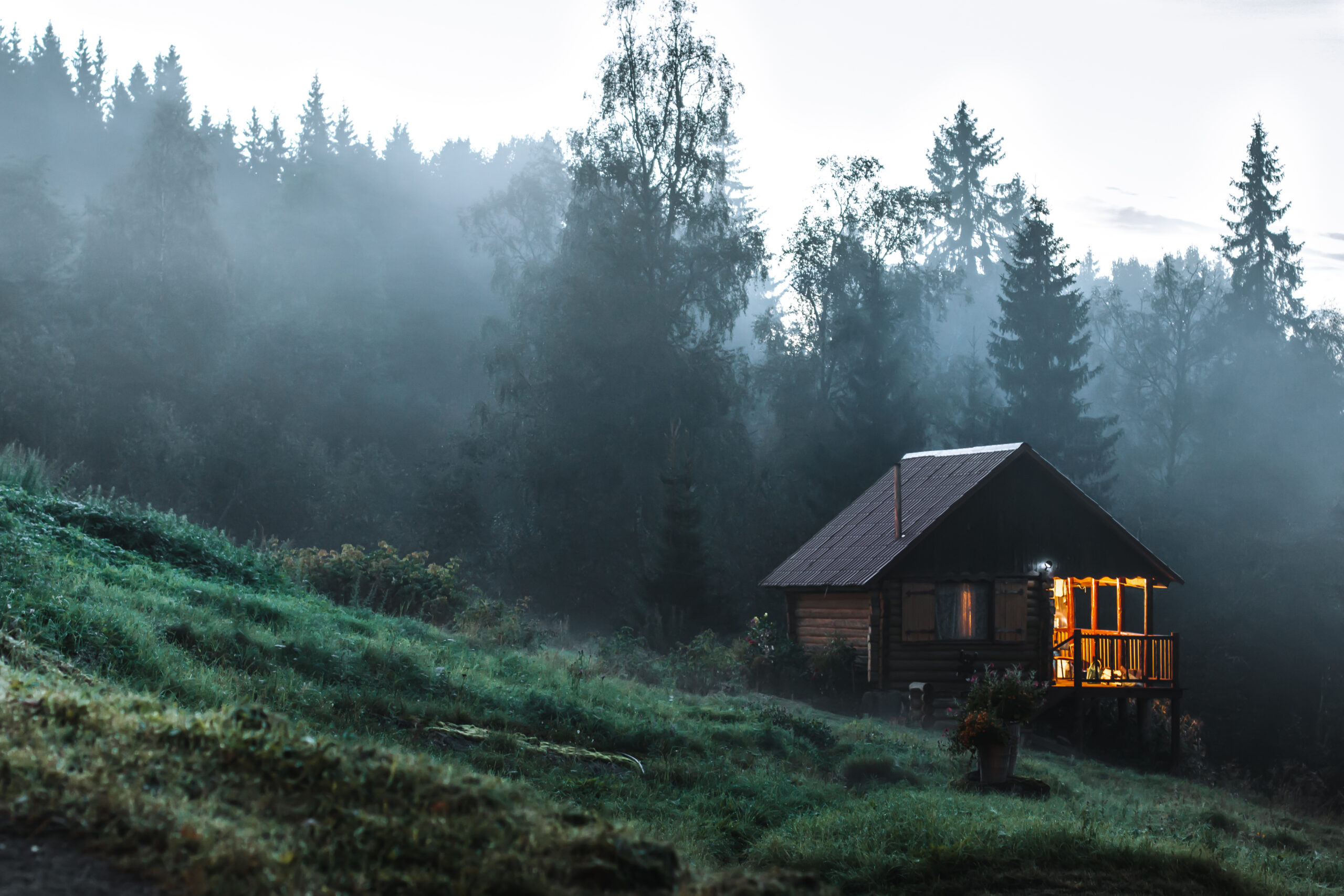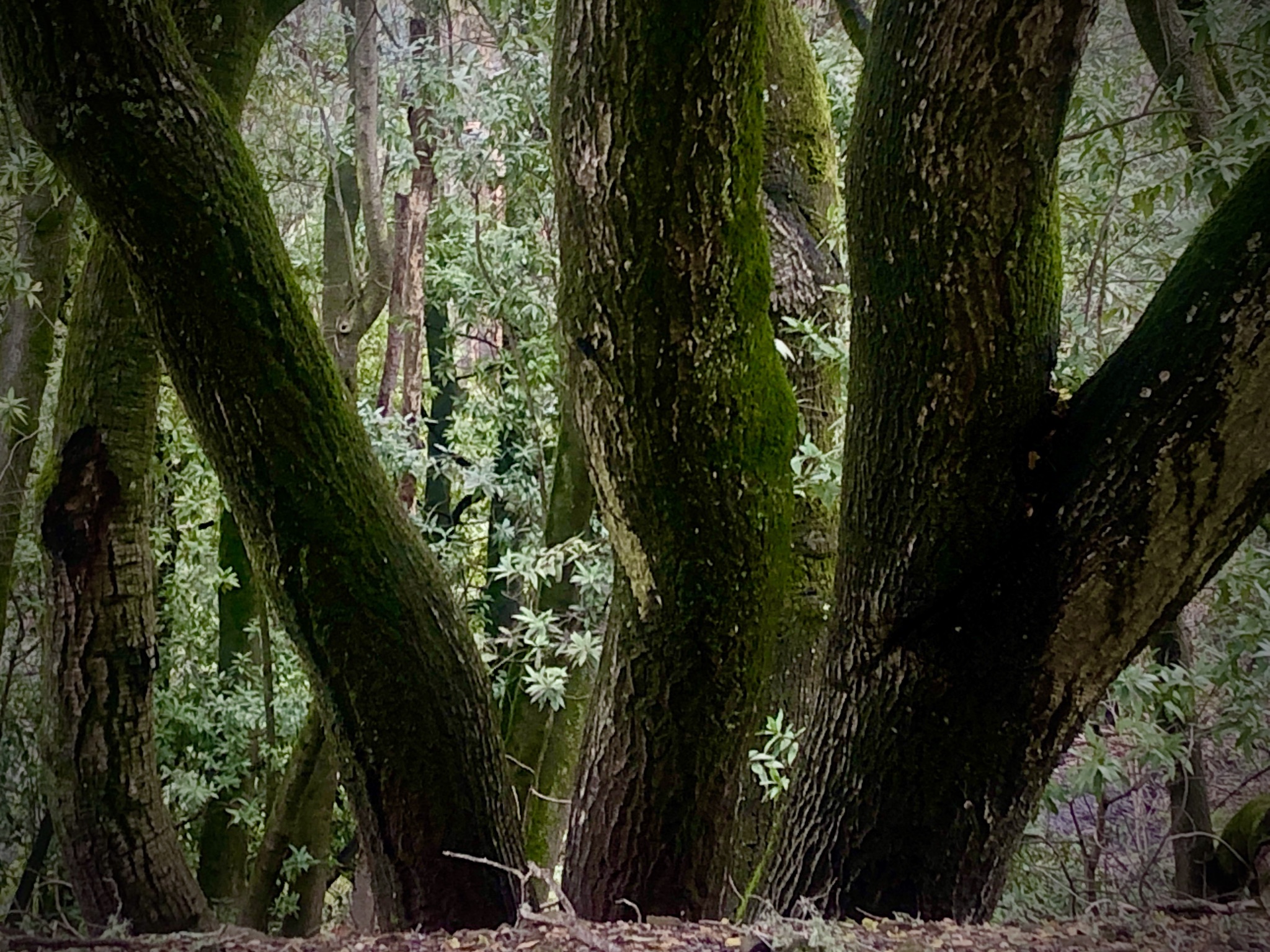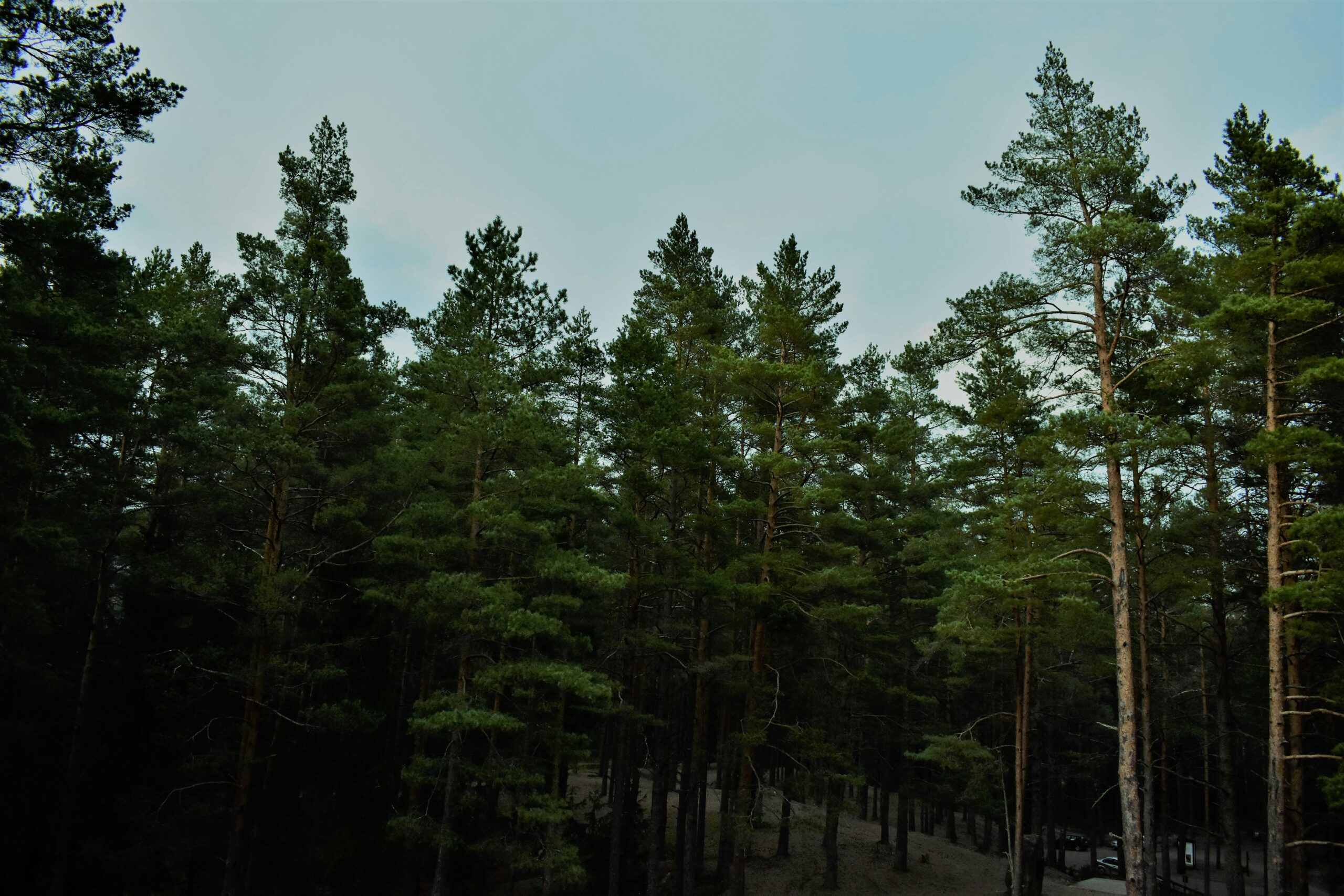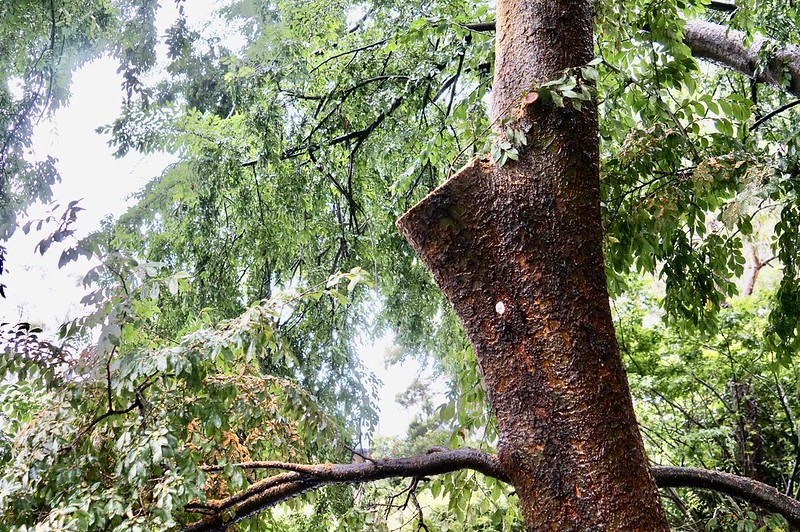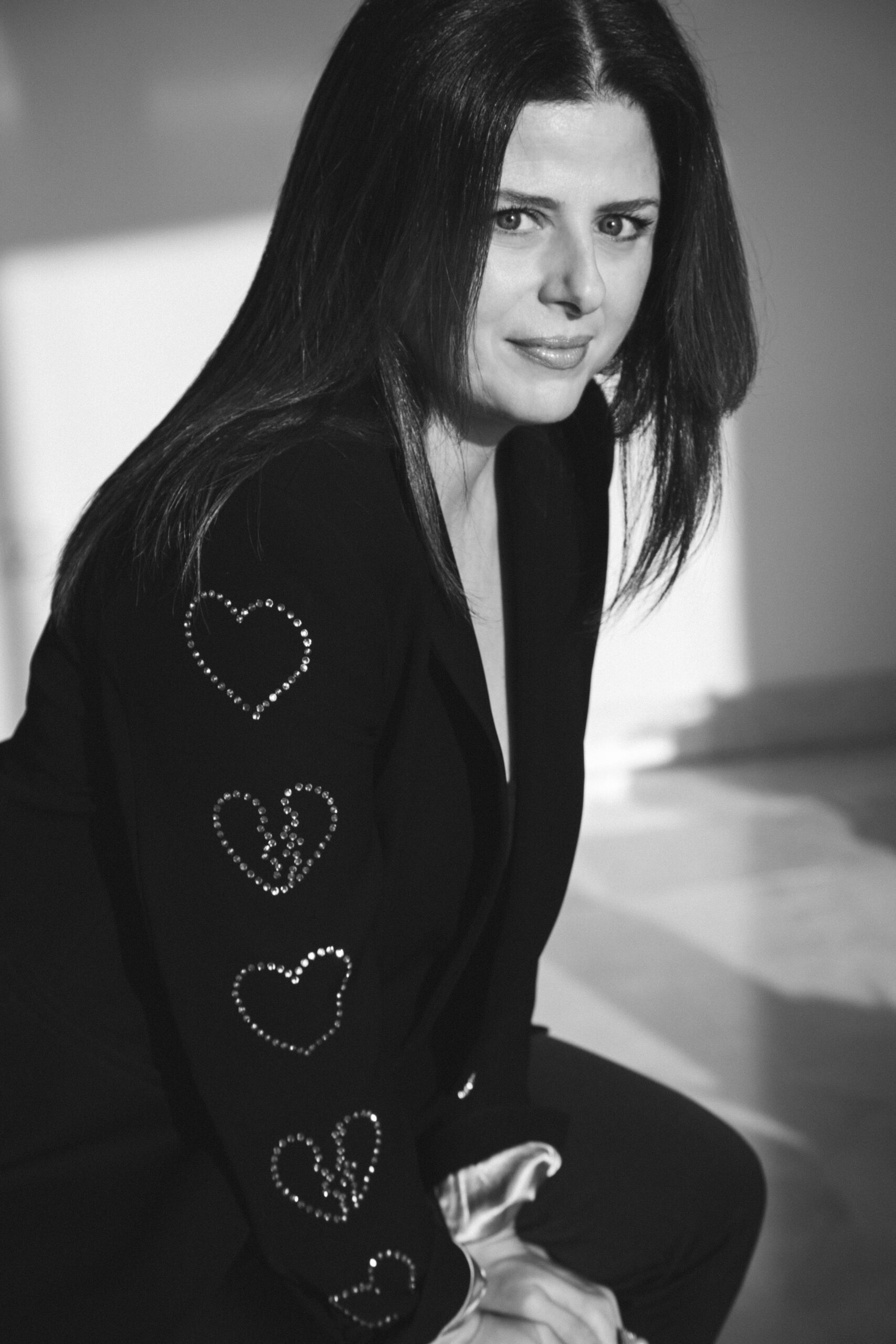I’m standing in the exact spot
of this photograph, looking at the past—
my middle son, still alive, lying on the rug
at my feet in my oldest son’s house.
On his wide chest, his niece, weeks old,
sleeps, adrift perhaps in the familiarity
of the heart’s steady beat, her memory
of him formed mostly by this photograph.
The Window
By IMMA MONSÓ
Translated by MARLENA GITTLEMAN
Lisa
Morning after morning, Lisa would wake up with an easily achievable aspiration: to eat breakfast while contemplating the house at the bottom of the valley, which stood in the distance amidst the fog. When the fog started to fade, she could make out frost-covered shingles and smoke rising from the chimney. She could glimpse the narrow ribbon of water that divided the field behind the house, until it disappeared into the darkness of the impenetrable forest. And she could, above all, train her gaze on a hypnotizing point: the only lit window, the window of an attic room, a room Lisa guessed was a study.
Dominus
By ANGIE MACRI
Danger, as in strangers, men or women;
as in twisters at night when you couldn’t
see them coming; as in the machines
that made work so easy you forgot
to watch what you were doing,
Akoloute (Sequi Me)
Tracing dusty footprints, you can be led
to fornix, to tombs, the circus and bars,
to my lupan, my cell, my earthen bed;
what waits is not secret—see what I are?
I’m not a barmaid, an actor or slave;
I’m not being cursed because I had sinned—
I’m earning my keep in this grisly trade.
For that I am traif, but come along in.
I’ll lead you to places you’ve never had;
to hell in a basket: one bloody as.
Zoraida Burgos: Poems
By ZORAIDA BURGOS
Translated by PETER BUSH
OUR VERY OWN EQUILIBRIUM
Wearily, but firmly, we twisted
our feeble trunks
around a stump
alone but not sad amid other trees,
entangled roots
clinging till the last
to our rough stony ground.
We grow two shoots
bringing hope to our landscape
when a ruddy wing on the bare
mountain horizon
heralds a threatening wind downstream.
Thoughtfully, carefully,
we’ve been turning our mud,
our clay, bare-fingered,
with the strength of truth,
of harsh truth dead reborn,
our hands tightly clasped.
And nothing, no wind, no clouds, no rain, no threats
will shake
the stump, clay or mud, and these shoots,
for wearily,
but firmly,
we’ve made them our own.
Ponderosa
By SHANE CASTLE
Laughlin learned to hear on the hobby farm in Montana. One late afternoon, the summer he and Cassie bought the five hillside acres outside Helena, he was setting wood posts for the new corral when he heard a sound among the ponderosas toward the top of their property. It was like nothing he’d heard before. He walked up the drive toward it. A breeze was swaying the tops of the trees, and he heard it again and imagined some kind of Mylar weather balloon, blown off course, deflated, stuck in a tree. That’s what the sound was like: someone blowing a taut edge. He remembered being a kid, his family visiting Meema and Peepa at their old place on Animas Creek. He remembered Peepa teaching him and his little brother, Tyler, to blow blades of grass like kazoos. Laughlin looked and looked but found nothing. He walked a while among the tall ponderosas, at times certain he was right under it, only to look up and see nothing, and it went on this way until that moment when dusk turned to dark, when, abruptly, the sound stopped.
Dead Elm (Plufort VI)
It stood beside the dining hall and taller than the dining hall
by half again as much, and in all weather, against all skies
it was like a lit synapse, wild. We went in and out under it
Letter to Archilochus
The fox knows many things, but the hedgehog
knows one big thing.
—Archilochus, 680–645 BCE
Well, Archilochus, I guess your lyre
might help me mock, and maybe mourn, this loss—
today I broke the frosted Elvis glass
I bought at Graceland when the symposium
of poets toured the mansion.
Roma Nostra
I said nothing and thought
of the Foro Romano—
its basilicas, temples, arches—
imagined being by the Lapis Niger
confessing by the tomb of Romulus
and listening to Livia.
The Decline and Fall of the Roman Empire
Rome, New York
after Austin Araujo
In my favorite picture of you, the hair blown across
your face, obscuring your face, it’s easy to make out,
deep in the distance, the hangers of the air force base
classified as a superfund site, a sprawling huddle
of buildings expanding out into the extent of the valley.

